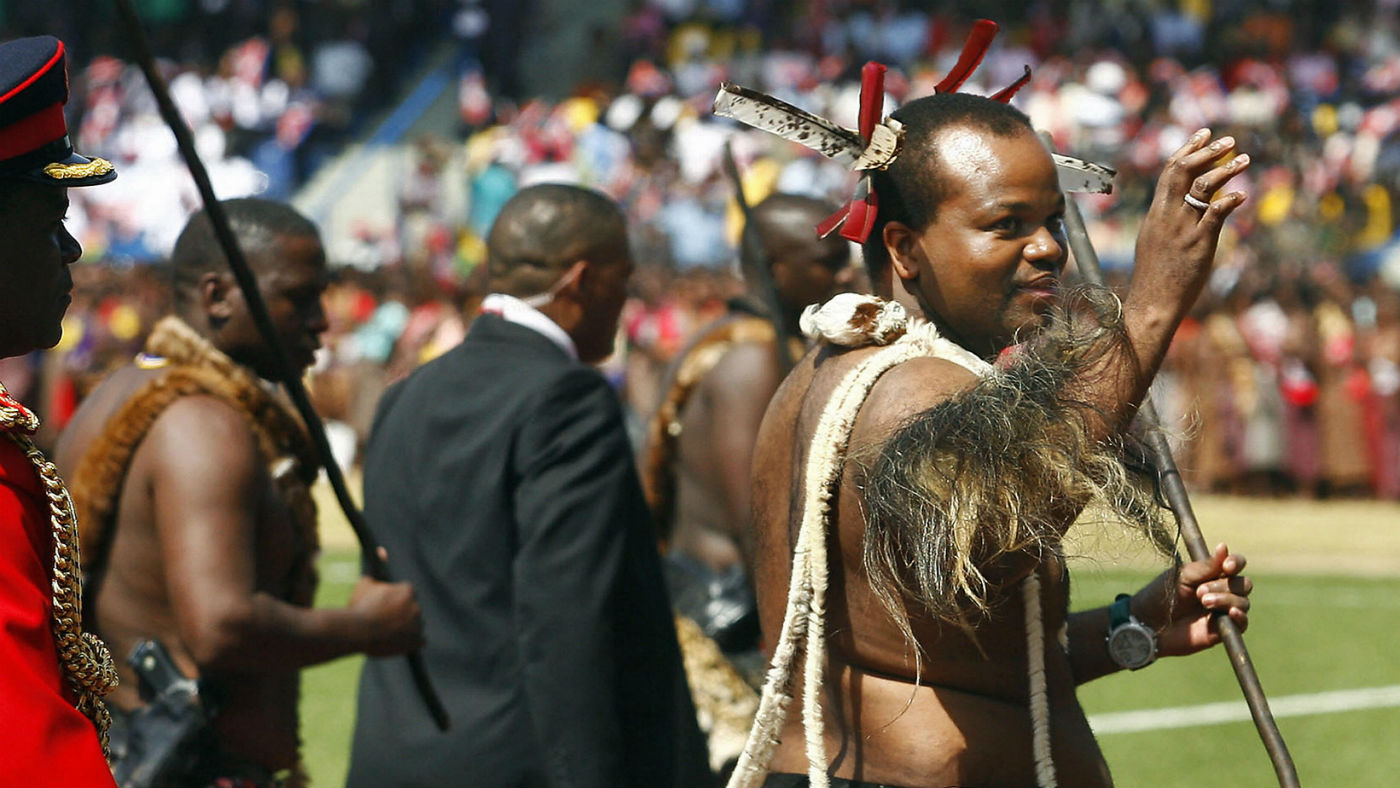Why Swaziland is changing its name to eSwatini
King Mswati III announces name change to mark 50 years of African nation’s independence

A free daily email with the biggest news stories of the day – and the best features from TheWeek.com
You are now subscribed
Your newsletter sign-up was successful
Swaziland’s King Mswati III announced this week that his country would henceforth be known as the Kingdom of eSwatini, during celebrations to mark 50 years of independence from British rule.
While some Swazis view the move as a ploy to distract attention from problems such as the nation's “sluggish” economy, many welcome the chance to shrug off the country’s legacy of colonial rule, the BBC reports.
In addition to the symbolic value, the king also has more practical motivations for changing the country’s name. “Whenever we go abroad, people refer to us as Switzerland,” he said.
The Week
Escape your echo chamber. Get the facts behind the news, plus analysis from multiple perspectives.

Sign up for The Week's Free Newsletters
From our morning news briefing to a weekly Good News Newsletter, get the best of The Week delivered directly to your inbox.
From our morning news briefing to a weekly Good News Newsletter, get the best of The Week delivered directly to your inbox.
Why is the name Swaziland controversial?
Swaziland is an English translation of the Swazi people’s own name for the kingdom, eSwatini, which means “land of the Swazis”.
Following British victory in the Anglo-Boer War, Swaziland became a British protectorate in 1903.
The country retained more autonomy than a colony - keeping its monarchy, for example - but still ultimately fell under British rule.
A free daily email with the biggest news stories of the day – and the best features from TheWeek.com
Unlike many other former British dominions in Africa, Swaziland did not change its name after gaining independence, in 1968. However, many Swazis were uncomfortable about the continued use of the English “land” ending.
The idea of reverting to eSwatini “has been mooted for several years”, with legislators last considering the issue in 2015, says Al Jazeera.
What other former colonies changed their names?
Ten former British colonies in Africa adopted new names following independence, to better reflect the heritage of their inhabitants. Northern and Southern Rhodesia became Zambia and Zimbabwe respectively, while British East Africa split into the republics of Kenya and Uganda.
Like Swaziland, several nations dropped the English “land” endings from their new names. Bechuanaland took the name Botswana, Basutoland renamed itself Lesotho, and Nyasaland became Malawi.
Several French, German and Portuguese colonies did likewise. Present-day Namibia was known as German South West Africa under German rule, while two French territories - French Equatorial Africa and French West Africa - gave birth to 12 modern-day nations, including Chad, Ivory Coast and Senegal.
Will any other countries follow suit?
Nigeria, Sierra Leone, South Africa and the Gambia have all retained their British colonial names, as have former French territories Algeria, Madagascar and Tunisia. So far, there has been no indication that any of them have plans to change their name.
However, in South Africa there is an long-running debate about whether the city of Pretoria, named after a Boer leader, should be renamed Tshwane, in honour of the chief who originally ruled the region.